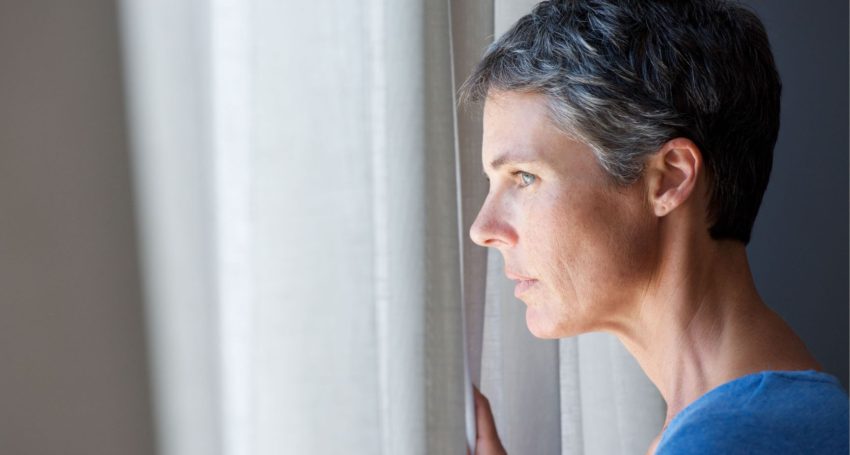Whose side are we on?
Features
“One of my close friends recently opened up about the extent of the violence she experienced in her marriage. Raised in a Christian home, she married a Christian man whom she said, ‘looked perfect on paper’. They are both intelligent people at the top of their professional fields, and had a lovely home with beautiful children at the best private schools. I knew that there were problems, but it was not until a year after they separated that I discovered the extent of what she had endured,” says The Rev’d Ann Edwards

Story Timeline
Listening to and supporting survivors of domestic and family violence
It has been five years since we moved house, and I finally dusted off my treadmill and set it up. My eleven-year-old son was impressed and curious.
“Why are you getting the treadmill out, Mum?”
“Because we’re so busy during the day, I want to be able to run at night.”
“Why don’t you just run outside?”
Why don’t I just run outside at night? As a young woman, I would, albeit always watching, sticking to lit roads, phone unlocked with my husband’s number pre-dialled, hair in a bun instead of a ponytail (to avoid giving a convenient ‘handle’ from behind), scanning the streets ahead for homes with lights in case I needed to seek a safe place. It made my husband nervous, but I wanted that freedom.
I still do.
Every woman knows the fear of walking home alone.
Girls and teenage women are raised sharing tips and strategies “to keep ourselves safe”. Telling women how to stay safe from men when they are out and about is like handing a towel to a person in a thunderstorm, then blaming them when they’re hit by lightning.
However, as we know, women’s experience of gendered violence commonly extends beyond the streets and into their homes, usually at the hands of intimate partners.
One of my close friends recently opened up about the extent of the violence she experienced in her marriage. Raised in a Christian home, she married a Christian man whom she said, “looked perfect on paper”. They are both intelligent people at the top of their professional fields, and had a lovely home with beautiful children at the best private schools. I knew that there were problems, but it was not until a year after they separated that I discovered the extent of what she had endured.
Advertisement
She said that she delayed leaving him because she felt responsible for his mental health and she was concerned he would take his own life. His professional practice relied on a clean police record and their home and school payments relied on his income. And, she said that she “felt ashamed”.
She said she “felt ashamed”!
Why is it that a person can be beaten regularly in our local community, and then feel the need to hide that abuse partly out of shame? As though the violence was about who she is, rather than what was happening to her and the character of the man committing the violence. Neither she nor I can answer that question.
“One day”, she said, “use my story in a sermon. Tell people what happened to me so they know. So they know it can happen to anyone. If it happened to me, it can happen to anyone.”
This week, The Rev’d Suzanne Grimmett from St Andrew’s, Indooroopilly and I reflected on the increase of people contacting us to seek pastoral care, especially people from our pasts who have reached out. People in our local communities that have spoken for the first time. Women who have experienced harassment at work, violence in their families, and sexual assault. Women who carry this secret, bearing the trauma as quietly as they can because they fear that they won’t be listened to, won’t be believed and may even be held responsible, and because they feel that they’re alone. We listened, we cared, we referred, and we listened again to women across the constellation of wealth, health, age and education. Trauma changes everything.
Advertisement
It strikes me now that these conversations were between women. How many men can possibly understand what it is like to be a fully grown, accomplished, intelligent, strong adult and yet be afraid, terrified and terrorised in their own home? Or, to be powerless when assaulted by a friend, colleague or family member?
When we demonstrate that we are willing to listen carefully, the stories come out. When we believe a woman who begins to talk, they can more easily find safety. And, that changes everything.
We need to change everything because one in three women experience physical or sexual violence or both, perpetrated by someone they know.
Enough is enough.
Jesus broke with gendered social conventions when he healed the haemorrhaging woman, accepted the ministrations of the unnamed woman before his death, and affirmed the place of women at his feet with his disciples.
How is it now that we hide behind this idea that the truth is somewhere in the middle, that there’s always two sides to a story with accountability on both sides, and that women somehow benefit from the career and financial impacts, social ostracisation and social media vilification that comes with speaking out? This is all a very convenient narrative so people who aren’t at risk can avoid addressing a very ugly truth that can no longer be contained.
Thousands upon thousands of women marched yesterday, telling us “enough is enough”. The stories can no longer be hidden or silenced. The shame should not rest with those that experience violence, but on the perpetrators of violence and the systems that enable and protect them.
Their combined voice is the prophet’s cry for justice. They are overturning the tables of the systems that continue to fail them.
Whose side are we on? Who will we believe? We in the Church need to make up our minds because domestic and family violence does not end until something is done to stop it. Unless, of course, the woman is killed, sometimes along with her children.
We need to make up our minds because sexual assault and violence happen in our local communities – and we all know this. We might like to think that it doesn’t happen in our suburb or the Church – because rewriting the narrative this way means that we don’t have to act.
As for the treadmill and my son, I told him I didn’t run at night because women were far more likely to be attacked at night than were men. So while Dad was reasonably safe, I was not. And so I use a treadmill, which isn’t fair, but is necessary right now. He was outraged on my behalf.
My eleven-year-old son understands that it is time for justice. It’s time all adults did, too.
Here are some important things we can all do to change the culture in our communities that enables domestic and family violence:
- Teach our children about consent from a young age. For example, we can start with children when they are ‘roughhousing’ – if someone says “stop”, they must STOP. This is not negotiable. Likewise, tickling ends when the person says “stop”, and doesn’t restart until the person says “go”.
- We need to start educating our teenagers early about sexual consent. Our teenagers and young adults need to understand that all touching requires consent. It isn’t “yes”, unless it’s an enthusiastic and freely given “yes!” If we love our neighbour as ourselves, consent must be seen as stopping when the person is disengaged, no longer responding, recoiling or frozen. Consent is never freely given in response to guilt trips, wheedling, nagging or threats – even in marriage.
- Don’t leave these conversations to the school system – classroom conversations are not enough. If parents/caregivers don’t know how to have such conversations, then learn – go to excellent government resources, and use the ‘Consent: It’s as simple as tea’ video, which has had nearly five million views, to help frame your conversations.
- Men – challenge sexist speech, including ‘jokes’ that put down women, and be clear that violence is a choice.
- Believe the women who tell you they are at threat of being harmed or have been harmed. Don’t be tempted to make excuses for the person responsible, even if you know him. Nothing excuses violence.
- Men – know that ‘nice’ guys can abuse and assault women. If violent men were easy to spot, our world would be an awful lot safer. They will likely look just like you, they will likely look just like our sons. Bear in mind that gendered violence doesn’t discriminate according to wealth, profession, religion or class.
- Know that it is hard to leave a violent relationship. Know that women are most at risk of being killed in the 12 months after they leave. Know that custody arrangements and financial settlements can tether women to their abusers for years.
- Know that sexual assault has long lasting ramifications – mental, financial, physical and social. It has been suggested that women that have survived rape may be the largest proportion of people with post-traumatic stress syndrome.
- Find out how you can support women who come forward needing help, such as by reading government resources.
- Educate yourself on the impacts experienced by women as a result of sexual assault, such via government websites.
Editor’s note: If you are in immediate danger, call 000 for police or ambulance help. For a list of helplines and websites available to women, children and men, visit this page on the Queensland Government website.





